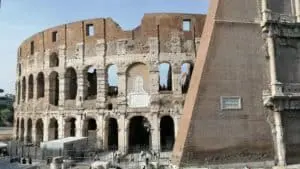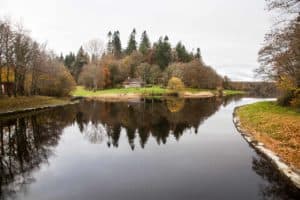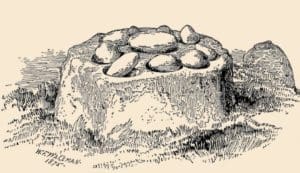Simon Bolivar: Unfolding The Enticing Stories of the Liberator’s Heroism

Updated On: February 27, 2024 by Miranne Khaled
Venturing into the historical chronicles of South America can be akin to embarking on an intricate expedition, a journey through a labyrinth of time and events. Yet, amidst this tapestry of complexity and richness, one name shines with unwavering brilliance: Simón Bolívar. A pivotal figure in the quest for independence from Spanish rule, Bolívar’s legacy is etched indelibly upon the landscape of Latin America.
Today, we’re shedding light on an enthralling odyssey, tracing the footsteps of Bolívar’s extraordinary life, from his humble beginnings to his prominent rise as “The Liberator” and his profound impact on shaping the continent we know today.
Prepare to be captivated by a voyage back in time, where history comes alive, and the spirit of revolution ignites the flames of freedom.
Early Life and Political Career of Simón Bolívar
Before participating in the Latin American independence struggle, Simon Bolivar, born into an affluent family in Caracas, travelled a lot and attended European universities. His leadership of Gran Colombia resulted from his crucial participation in Venezuela and New Granada’s declaration of independence.
Family Background and Educational Pursuits
Simon Bolivar was born in the Venezuelan Capital of Caracas on July 24th, 1783. At the time, Venezuela was still a Spanish colony. He hailed from a wealthy household, yet his life with his parents was relatively brief, for they passed away when he was still a youngster.
Being an orphan, Bolívar was raised by his uncle, José Félix Palacios, and his aunt, Teresa del Toro. He received a classical education from private tutors and attended the Royal Academy of Caracas. In 1799, Bolivar travelled to Spain to complete his education. He studied at the Royal Seminary of San Carlos in Madrid, where he became interested in the Enlightenment and the ideals of liberty and equality.
A Life-Changing Trip Around Europe
He travelled across France and Spain, exposed to new political and governance concepts. This encounter affected Bolivar’s views and fuelled his yearning for Latin American independence. His trips also allowed him to experience firsthand the force of revolutionary movements in Europe, fuelling his desire for independence in South America even more.
His trip across European countries made him a pivotal figure in Latin America’s fight for freedom. Simon Bolivar conducted military expeditions and conflicts that freed nations from Spanish dominion, including Venezuela, Colombia, Ecuador, Peru, and Bolivia, becoming a political thinker aiming to establish separate states with republican governments.
The ultimate ambition of Bolivar was to combine these newly liberated states into a single continent known as Gran Colombia. Despite hurdles and tensions within the new republics, his actions cleared the ground for South American independence and are still seen as emblems of unity and freedom today.
Declaration of Independence for Venezuela and New Granada
Simón Bolívar’s role in the Declaration of Independence for Venezuela and New Granada was pivotal and transformative. He played a leading role in both the military and political spheres, galvanising support for independence and shaping the course of these developing nations. His military prowess was instrumental in securing Venezuelan independence.
His strategic brilliance and tactical acumen led to numerous victories against Spanish forces, culminating in capturing Caracas in 1813. He drafted the “Decree of War to the Death”, a radical measure that called for the extermination of Spanish loyalists, enticing support for the revolution among Venezuelan patriots.
Influenced by Enlightenment ideals, the document declared Venezuela’s separation from Spain and established the First Venezuelan Republic. Bolívar’s liberation campaign in New Granada in 1819 was a turning point in the fight for independence. After crossing the treacherous Andes Mountains, his forces decisively defeated the Spanish, leading
Leadership in Gran Colombia
Despite Bolívar’s efforts, Gran Colombia faced numerous challenges, including regional rivalries, economic instability, and external threats. His vision of a unified Latin America faced opposition from those favouring local autonomy. Additionally, the vast territory of Gran Colombia proved difficult to govern effectively.
In 1830, Gran Colombia dissolved into separate republics after a decade of turmoil. However, Bolívar’s legacy endures, as he remains a symbol of Latin American unity and independence. His leadership in Gran Colombia showcased his remarkable ability to navigate complex political landscapes, promoting education, cultural reform, and a collective sense of identity despite the challenges he faced.
Bolívar’s unwavering commitment to liberty, equality, and self-determination continues to inspire generations of Latin Americans. Though short-lived, his leadership in Gran Colombia left an indelible mark on the region’s history, setting the stage for modern-day Latin American nations.
The Story of Earning the Title “The Liberator”
In the annals of Latin American history, Simón Bolívar stands as a towering figure, revered as “El Libertador” (The Liberator) for his pivotal role in securing independence from Spanish colonial rule. The moniker “El Liberator” was not merely bestowed upon him; it was earned through his unwavering dedication to the cause of liberty and his extraordinary military and political achievements.
The title “El Liberator” resonated deeply with Bolívar’s vision for a free and independent Latin America. He envisioned a unified continent, unshackled from the shackles of colonial rule, where the ideals of liberty, equality, and self-determination prevailed.
Over the next decade, Bolívar continued to lead the fight for independence, liberating Venezuela, New Granada, Ecuador, Peru, and Bolivia. His military campaigns were arduous and often brutal, but his determination never wavered. Through his unwavering commitment to the cause of independence, Bolívar earned the respect and admiration of people across Latin America.
In 1825, the newly independent nation of Bolivia was named after Bolívar, a testament to his immense contributions to the region’s liberation. The name “El Liberator” became synonymous with Bolívar himself, forever etched in the annals of Latin American history as a symbol of freedom, courage, and the unwavering pursuit of liberty.
Controversies Surrounding Simon Bolivar’s Legacy
Simón Bolívar, the Liberator of South America, is a revered figure in Latin history, celebrated for his role in liberating several nations from Spanish colonial rule. However, his legacy is not without its controversies, stemming from his complex political views, authoritarian tendencies, and treatment of indigenous populations.
Despite being highly respected as a symbol of independence and unity in South America, Simon Bolivar was not without his fair share of controversies. One of the main points of the argument revolves around his vision for Gran Colombia. Although his goal was to create a united continent, his dream of a centralised government faced opposition from regional factions. This ultimately resulted in political instability and the eventual dissolution of Gran Colombia.
Another area of debate is Bolivar’s approach to governance. Some argue that he leaned towards authoritarianism rather than promoting genuine democracy in the newly liberated nations. These controversies shed light on the complexities and challenges Bolivar encountered during his pursuit of South American independence. Furthermore, there is criticism regarding Bolivar’s failure to address long-standing social inequalities in the region.
Despite advocating for liberation from Spanish rule, indigenous populations and Afro-descendants continued to face marginalisation and discrimination even after independence. This has led some critics to question whether Bolivar’s revolution truly brought freedom to all segments of society or simply transferred power from one ruling elite to another.
Rare and Interesting Facts About Bolivar
These are just a few of the many fascinating facts about Simón Bolívar. He was a complex and controversial figure, but there is no doubt that he played a significant role in shaping the history of Latin America.
Appreciated Sports
As a young man, Bolívar was challenged by General José Antonio Paez to ride a horse without a saddle through an entire night. After completing the challenge, Paez nicknamed Bolívar “culo de Hierro” (iron bum). Bolívar was also a skilled swordsman and duelist. He won several duels throughout his life, often using his skills to resolve disputes or defend his honour.
Prolific Writer and Avid Reader
Bolívar was a prolific writer, penning numerous letters, essays, and speeches. His writings provide valuable insights into his political philosophy, military strategy, and personal life. He was also an avid reader who had a penchant for collecting books. His library contained over 4,000 volumes, reflecting his wide range of interests. It’s worth mentioning that Bolívar was deeply influenced by the writings of Jean-Jacques Rousseau, a French philosopher who championed the ideals of liberty, equality, and democracy.
He was a Freemason
Simon Bolivar was also a member of the Freemasonry, a fraternal organisation that played a significant role in the Latin American independence movement. The Freemasonry, with its emphasis on reason, liberty, and equality, resonated deeply with Bolívar’s ideals. He joined the organisation in 1803 and quickly rose through its ranks. His involvement in Freemasonry provided him with a network of contacts and a platform to promote his revolutionary ideas.
Simon Bolivar is undoubtedly a revolutionary figure who rewrote the history of South America. With his military prowess and political acumen, he successfully freed numerous countries from the clutches of Spanish colonialism and aimed to unite the continent. His legacy as “The Liberator” remains a source of inspiration and a symbol of the ongoing struggle for freedom in South America.






